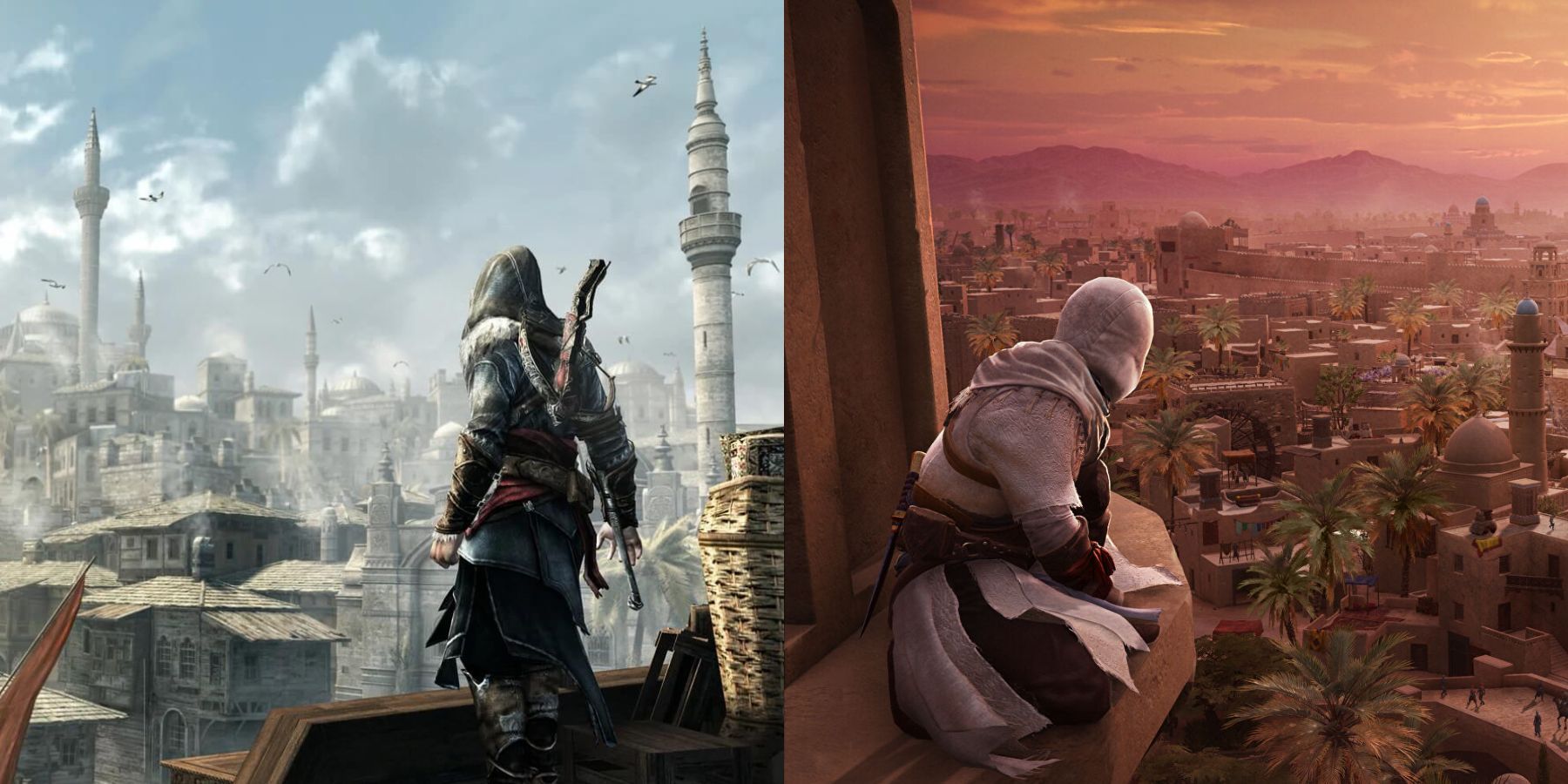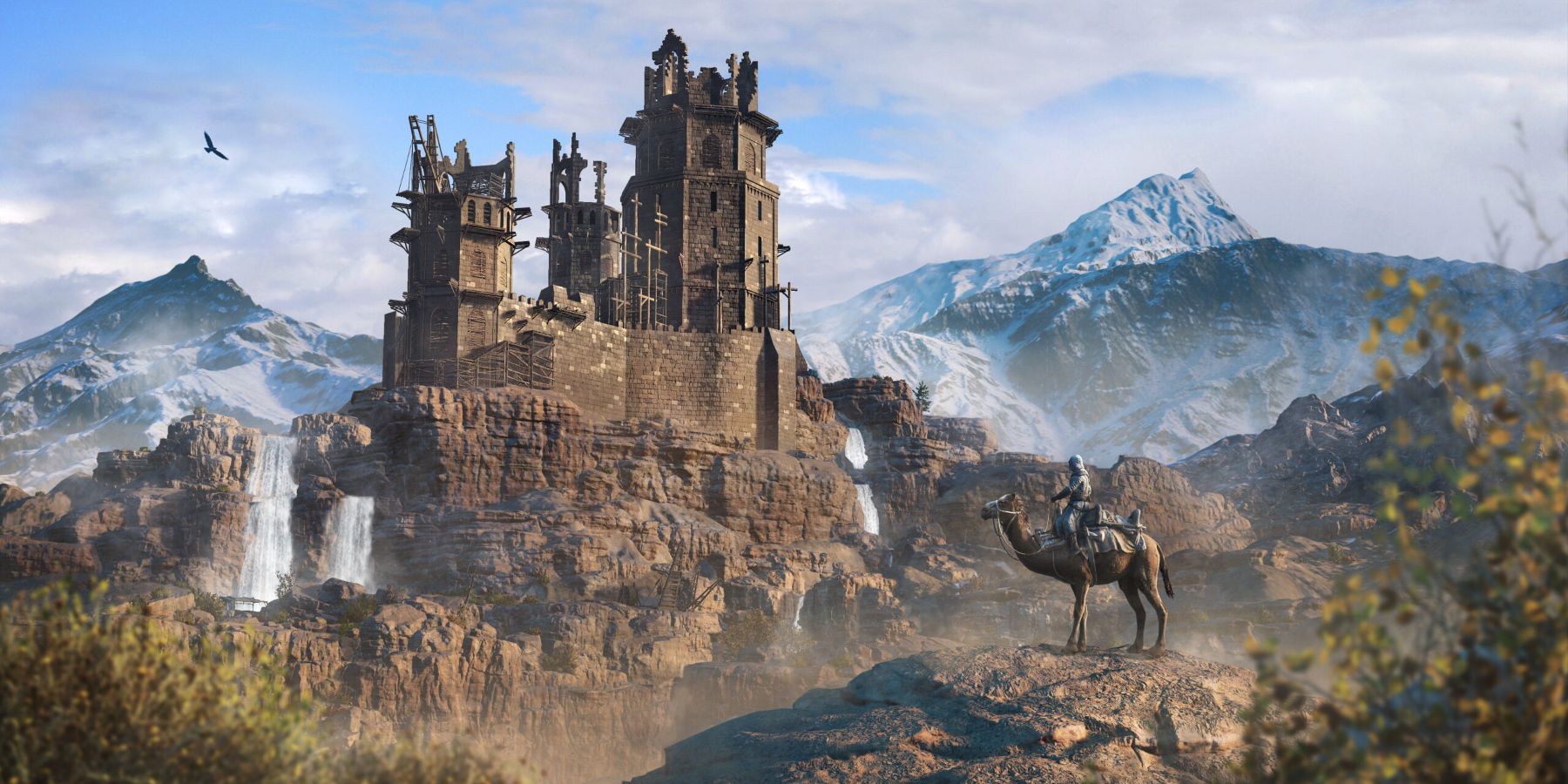Assassin's Creed Mirage is the next entry in Ubisoft's flagship franchise, set to release some time in 2023. It's said to return to the franchise's original formula after the past three entries took a more action-RPG approach, receiving mixed reactions from many long-time fans. But it's not just the gameplay of the series' past that Assassin's Creed Mirage could learn from. The new game could offer a chance to create a new trilogy like the one that made the franchise a household name.
The next major releases after Mirage have already been mapped out by Ubisoft, being Assassin's Creed Red and Hexe on the Assassin's Creed Infinity platform. That means a direct sequel to Mirage doesn't appear to be in the pipeline yet, let alone two of them. But it could be a real missed opportunity for Ubisoft if Basim's story is kept to only one game. The setting of Assassin's Creed Mirage and its wider role in the series' narrative might make it the perfect candidate for a trilogy akin to Ezio's.
Assassin's Creed Mirage's Baghdad Is Similar to The Ezio Trilogy's Settings
Assassin's Creed 2 remains the only game in the series to have direct sequels with the same protagonist through Brotherhood and Revelations, collectively known as The Ezio Trilogy. The trilogy was well received for remedying weak points of the original Assassin's Creed, while being early enough that the formula had not yet lost its appeal. While it had its fair share of issues, like weak side missions and a hit-or-miss modern story, The Ezio Trilogy's games remain some of the most popular in the franchise.
One of the things that made the trilogy more compelling than some of the other games in the series was its setting, and it's one that is rather similar to that of Assassin's Creed Mirage. Mirage is set in 9th Century Baghdad, during what is today known as the Islamic Golden Age. It was a period of incredible innovation in the Arab World for poetry, healthcare, engineering, and art. Its significance was similar to that of The Ezio Trilogy's Renaissance Italy.
That's what makes Mirage suited to a longer story that could be split over multiple games. The period was full of political and cultural events that make for great stories over multiple years. It also has the added bonus of these innovations and events largely being ignored by popular fiction, unlike the Renaissance. That means there is plenty of material to cover in the artful mixing of in-game lore and historical accuracy that the Assassin's Creed series has become known for.
One example is a story around the Banu Musa brothers, three scholars who designed the earliest known programmable device and early examples of robots. Their role could compare to that of Leonardo da Vinci's story as a historically creative way to explain Ezio's new equipment like the improved hidden blade. His real-life designs also inspired some of the most memorable missions of that trilogy. Likewise, the Banu Musa - whose lives coincide with Mirage's setting - could be a way for Basim to upgrade his tools.
The latter portion of Ezio's story could also be a blueprint of how a Basim trilogy could conclude. Having The Ezio Trilogy end in Constantinople refreshed the setting, and since Mirage is set 20 years before Valhalla where Basim features, a third game could take Basim to a new location akin to Revelations. This way, it bridges the gap between Mirage and Valhalla, exploring his activities between leaving Baghdad and arriving in England.
Assassin's Creed Mirage releases in 2023 for PC, PS4, PS5, Xbox One, and Xbox Series X/S.


